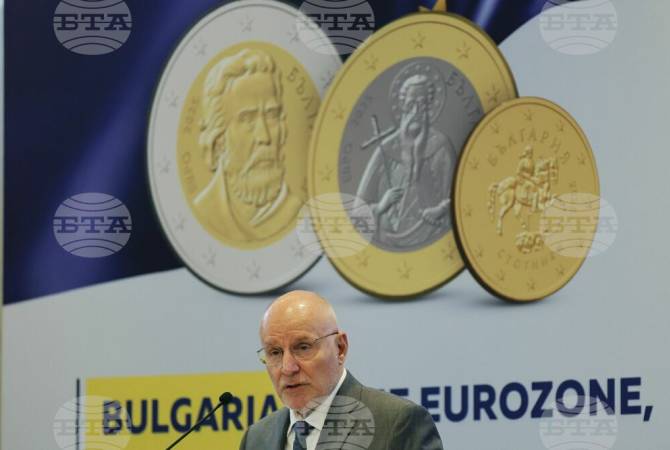Yerevan, May 14, Amen Press/BTA. Bulgaria needs to join the euro area as soon as possible and complete the process of European integration, Dimitar Radev, head of the National Bank of Bulgaria, said at the beginning of the conference entitled “When will Bulgaria join the euro area?” said. It will be held in Sofia. “Delays in Bulgaria's full integration into the eurozone, the core of the EU, will come at a cost, and those costs will increase over time,” he said.
He asserted that the damage caused by the delay would be worth billions of dollars.
Currently, Bulgaria meets all nominal criteria for eurozone membership, except for inflation. Although the negative price stability gap has been on the decline, including last month, BNB expects it to continue to exceed the requirement until the next review date (based on data as of the end of May). The governor explained.
He said that due to the close cooperation between BNB and the European Central Bank established in 2020, BNB and the Bulgarian banking sector are institutionally part of the euro area to some extent. “BNB is the only central bank operating under such a system. This activity, which has been going on for over three years, is proof that this participation has been a success,” said Radev.
He also pointed out that the Bulgarian lev is one of two currencies other than the euro that are part of the European Monetary Mechanism, which is an important precondition for euro zone membership.
The central bank governor also listed the steps the country has already taken to prepare for the transition to the euro. namely, the adoption of the new Bulgarian National Bank Law, which effectively finalizes legal integration with the support of the ECB and EC. A euro switch bill has been drafted and is ready to be submitted to parliament. Logistical and technical preparations have reached an advanced stage, mainly within BNB's remit, with payment, information, accounting and statistical systems ready to go live in the euro area after “final fine-tuning”. organized.
The preparation process for minting Bulgarian euro coins was completed in coordination with the Commission and each member state. “We are moving to a trial mintage of 8 million coins (1 million of each denomination),” Radev said. “Blanks for both the test series and regular production have been agreed upon and deliveries have begun. The areas necessary for currency exchange, including Sofia, Plovdiv and Varna, and the necessary equipment for currency exchange have been secured.” The decision on Burgas will be finalized by the end of the month, and the new cash center in Pleven will be operational by the end of the summer,” Radev said.
“The Mint is fully prepared in terms of equipment and expertise for the minting of Bulgarian euro coins. Although it has not yet obtained the necessary licenses to mint euro coins, this will be the subject of an upcoming test series. The BNB Governor said that the joint venture of the Bulgarian Mint has already received a license and is printing euro banknotes for the needs of the euro area central bank, as well as BNB's armored vehicles and security. The vehicles have been thoroughly updated and new transportation schemes and security systems have been introduced, Radev said, pointing out that the total amount of banknotes and coins in the exchange process alone amounts to about 12,300 tons.
Over the last year, much effort has been made to build up the capacity to implement an active monetary policy. The central bank governor said commercial banks' preparations are being closely monitored and are proceeding as planned.
“BNB and the banking sector will be fully prepared for the introduction of the euro domestically by the end of this year,” the BNB president said. However, he made it clear that from a purely technical and logistical point of view, this is not enough. “There are a number of information and accounting systems under the control of public administrations and local authorities that need to be adapted to operate in the euro area. Although these have been identified, they are still far from being fully ready. In addition, four conditions related to the non-bank financial sector, insolvency, state-owned enterprises, anti-money laundering, etc. need to be met within the competence of the administrative authorities before joining the euro area. The BNB Governor appreciated the caretaker government's intention to continue addressing these issues.
Radev also said: “Bulgaria needs a clearly established, sustainable and pro-European political structure. Bulgaria needs to achieve several goals. The first goal is to achieve the highest standards on this issue. “The second goal is to get back on track.” Third, the euro introduction law should be adopted as soon as possible. Fourth is to accelerate the remaining conditions and technical preparation work that is BNB's responsibility. And the banking sector will be ready by the end of this year. “If this scenario materializes as soon as possible after the upcoming elections, the possibility of joining the euro area in 2025 remains high and fully realistic,” added the BNB president.
(This information is published pursuant to an agreement between Armenpress and BTA.)

